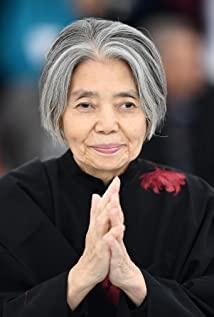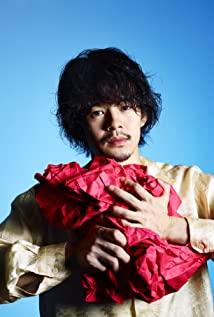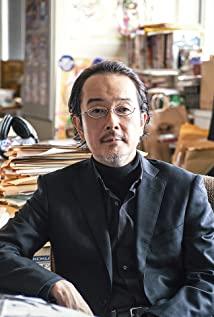Recently, "The Thief's Family" has been a hit, and the word of mouth has continued to ferment. In addition, the previous film has successfully won the Palme d'Or in Cannes, which has contributed to the fermentation of word-of-mouth. However, under the wave of praise, it cannot be ignored. It is the perspective that Hirokazu Koreeda deliberately chose and the "light of the bottom layer" that the film cares about. There are many places to be vigilant. 1. The bottom-level daily life full of luster "The Thief Family" still has the most charming and delicate daily life in Zhizhi's movies: a family without blood relationship eats sukiyaki without beef, clips nails and jumps into shoes, Picking up the shells hanging on the vest, eating vegetarian noodles sweating in the rainy days... These trivial details of life are clearly and naturally placed in the four seasons by the director, and they are presented slowly and fluidly, imbued with human touch. The director is also very particular about the use of light. Whenever the characters of "The Thief Family" are at home, the director puts a very elegant look on everyone's faces (even if they are building for male characters, they are exposed to the wind and the sun and their complexion is dull. Children have messy hair and dark skin), but the sophisticated face light makes their faces look very bright and shiny, whether they are black or dirty, especially their eyes, which are very clear and agile (especially children), and this director's attitude , to make the bottom people and their lives full of luster, so as to break the general view and stereotype of the bottom in society. 2. All conflicts are internalized by the director. The first 4/3 of the movie is very slow, and there seems to be no conflict. It is only towards the end that a huge conflict is externalized - the little boy's stealing mistakes lead to a series of chain reactions that make The entire family relationship collapsed.
But in fact, the contradiction has always been there. After the little girl disappears, it can be on the news. It can be seen that this case has been hyped up by the media in the outside world. In the family, "the little girl's going to stay", "how to hide after leaving", etc. They are all points of conflict, but the director played down this crisis and conflict, and solved the problem of leaving and staying with a scene where he heard the parents fighting on the way back to the girl, and solved the problem of the little girl with a scene of cutting her hair and burning clothes. hide the problem. These are all deliberately done by the director, so that people can't feel the tension from external forces, and focus on letting the audience see how people and people in the family get along, to show the bits and pieces of their lives, so that the audience can appreciate They have a sense of identity. Another example is the "awakening" of the little boy Xiangtai. The director only used it as a hidden line. Xiangtai's final intentional miss actually stemmed from his disillusionment with this seemingly warm "family". I realized that letting my sister take part in the theft was hurting my sister. Later, I further realized the immorality of "stealing". In the end, I saw Ando Sakura and Lily Frank happily counting the money of the dead grandmother and completely disgusted with "stealing". , Complete doubt and disillusionment about the family relationship, this is the process of the little boy's final action motive, and the director is very ambiguous about this process. He hides this line behind the warm and lovely daily details, and hides it in the little boy's quiet in play. This is done to let the audience first accept and believe that this "family" is "warm", and to prevent the audience from viewing this "family" from a critical and condescending perspective.
3. The single point of view deliberately selected for the performance is that Director Zhi deliberately chose a single point of view within the "family" to tell the story in the film. The audience can only see what the "family members" see and feel, and the audience can only see the "family" perspective. See, hear, and sense "stealing" (whether it's stealing goods or children). For example, when a child is "stolen", how does the child's family of origin feel? The store has been stolen all the time. How does the owner of the store feel? All these angles and sounds can be pinched and ignored by the director. With the arrangement of warm details, supplemented by the above-mentioned ways of dealing with internal contradictions, it is easy for the audience to abandon their inherent understanding of "bottom people" and identify them from the standpoint of "thief family", but it is worth vigilant. It's precisely that the director has done too much. What he deliberately shows the audience is just warm getting along and warm daily life, just the beauty of the light at the bottom, and he has barely explained anything to the stolen party. Regarding the selfishness and weakness of the "family" members, he is also very subtle, almost imperceptible. But it's not because the director doesn't know the weaknesses of these characters, it's not because the director doesn't think about the concept of "stealing". For example, after the death of grandma, Ando Sakura refused to call an ambulance and said she was dead without confirming it. For example, Ando Sakura and Lily Frank dug out their grandmother's money and counted them happily, and another example was when the little boy and the little girl saw that the shop that often committed crimes was in mourning and thought it was closed. The director of these plots has given them all, but they are all shot very lightly and skillfully, so that you can't feel that there is a huge malice and a huge collapse in these scenes. Especially the part about the closure of the little boy's canteen, I believe that many people didn't even notice the significance of this scene. In fact, this scene was before Lily should be told Frank's brainwashing on the little boy about "stealing" - "The goods are there, they don't belong to anyone, as long as the supermarket doesn't close down." At this moment, the little boy saw that the commissary closed down, and he took comfort in it before. This sentence is no longer true. He may even think that he secretly shut down the commissary. This is the first time he truly feels "guilt" from the bottom of his heart, and it is also the value he had always believed in before that began to collapse. Moment, and such an important scene, the director handles it very lightly, so light that most audiences may not care at all. After watching the movie, we need to think about why the director did this. After thinking about it, it is probably because the director agrees with the members of the "family" from the bottom of his heart. He hopes that the audience will not treat them with a condemning mentality. The director feels that their They feel that their selfishness and weakness are the common weaknesses of human nature, and they feel that their misery is social dereliction of duty, and they themselves are beyond reproach. What's more, the director also deliberately made all the original families in the film look cruel, which is in stark contrast to the warmth of the "thief family". It is this that is very worthy of vigilance. I personally reject any compromise and whitewash on the weaknesses of human nature. I have seen many people complimenting Director Ee's indoor play that reminds us of Mikio Naruse, but Naruse's performance towards the common people has never been able to cover up the weaknesses of human nature at the same time. , firmly believe in truth, goodness and beauty, and believe in the perseverance and courage of the common people in the face of a bleak world. "Life is full of holes, and they have their own weaknesses, but they still face the bleak life." Naruse is cruel and generous. In this family of thieves, it is Director Zhi's handling, but it smells like a decadent liberal. 4. The director forgives the "exploited" Another point that is more worthy of vigilance is the two places that many people feel uncomfortable - the old grandmother sitting on the beach and silently saying "thank you" (honor), and the ending of Shota He silently called "Dad" through the glass.
The handling of these two places may be considered too sensational by many people. Obviously, the director has been very restrained before. Why is the emotional expression of the characters so straightforward here? It is said that at the end of the film, the director also filmed the scene of the little girl calling her father, but finally decided to delete it. This shows that the director is very measured in the emotional expression of the characters, but why did the old lady and Xiangtai say these words in the end? Personally, I think this is not just the emotional expression of the characters. The reason why these two silent words were not cut out is because they also carry an attitude - "recognition" and "forgiveness". If you analyze it carefully, you will find that the old lady and Xiangtai are the most "exploited" and "occupied" in this family. (Forgive me for using such a cold word), what the old lady is "exploited" is money (pensions and alimony), what Xiangtai is possessed is her whole life, and stealing him to be her own child is to possess him and enjoy his Love, not letting Xiangtai go to school and taking him to steal with him is to occupy his life for his own benefit. In particular, Shota finally chose to deliberately let the police intervene, which has already shown that his trust in "family, collapsed, without the words of the old lady and Shota, Ando Sakura and Lily Frank's selfishness would not be forgiven and forgiven ( Of course, the main reason is that they are not recognized and forgiven by the audience), and they themselves cannot be redeemed. The director did this precisely because he believed that their selfishness was only a weakness of human nature, forced by society, and could be forgiven and redeemed. That's why I used the words of these two people to say "forgive" and "thank you". The reason why the little girl called her father was deleted is that this line has been explained more clearly: the girl was thrown away by domestic violence Outside, the two of them tried to bring the girl back after they brought the girl home. They brought it back because they heard abuse. These explanations are enough to make the audience agree with the "family"'s practices and will not criticize them, but the old lady and the Xiang Tai is different. These two sentences are necessary for the audience to agree with him. But I think the point of caution is here. In fact, will these two people really forgive? The fragility of this family relationship is really vulnerable. Is it only from the society? When the family members face real pressure and shock, they give up without hesitation without even facing each other, so the warmth of hugging together for warmth is illusory.
The human heart is very complicated. Abandonment at a critical moment and indifference at ordinary times may have the same lethality in a child's heart. What qualifications does the director have to forgive this child?
View more about Shoplifters reviews










